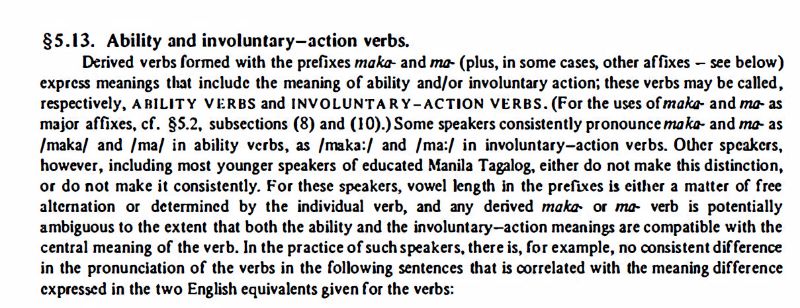I am not answering your question though but I am sharing my opinions.
I think the better way of stating the 1st and 2nd sentences is by using the word "na" after the verb, especially in the first and second pairs. If you don't put a "na", the meaning would be totally different. Also, the stress is on the second "ka" for both Tagalog sentences.
Nakakain na ako nyan. - I was able to eat that.
Nakakain ako nyan. - I could be eaten by that. (Something to that effect. The object of the verb changed). This is also a homophone.
The speed you speak "Naka", the first two syllables also changes the meaning of the word nakakain.
Faster "naka" for "nakakain na ako niyan" means "I was able to eat this already."
Slower "naka" for "nakakain na ako nyan." means, "I was able to eat this"
The third pair is correct.
On the fourth pair. The stress on the word "Nagagamit" is always on the second "ga". We don't pronounce it with the stress on the "na". Although again, the speed of how we pronounce "naga" which is the first two syllables could change the meaning of the word also. Thanks everyone.






